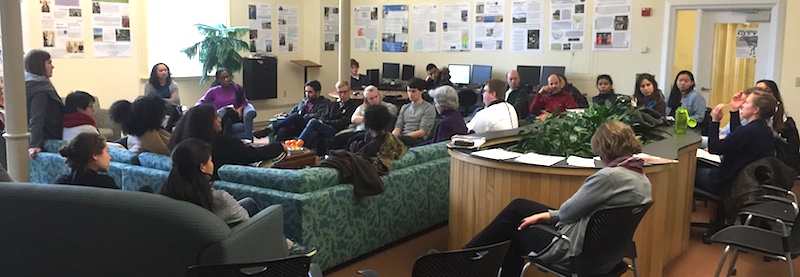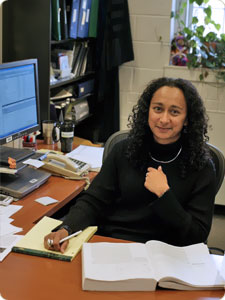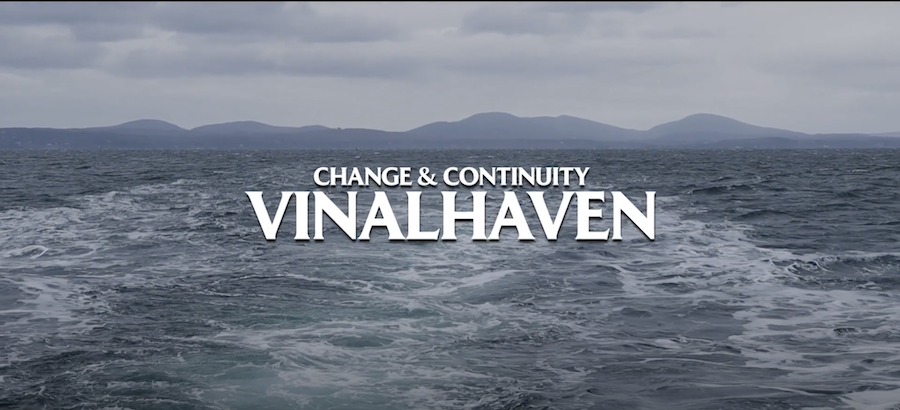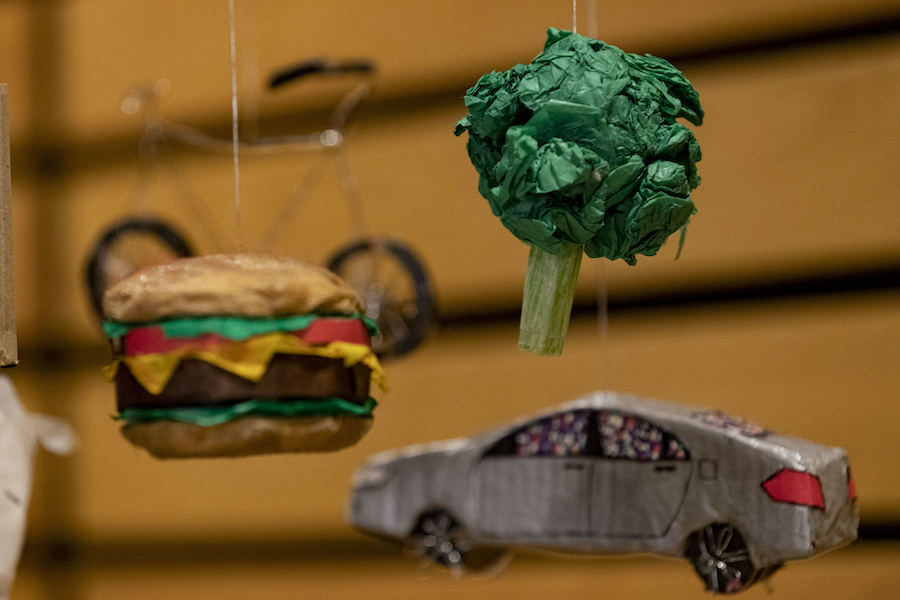Bowdoin Social Justice-Climate Group: The Flint Water Crisis

The faculty, staff and students who organized last fall’s community teach-In, which focused the campus’s attention on environmental and social justice issues, are continuing their work this semester.
The group, which calls itself Intersections: People, Planet and Power, or IP3, recently organized a discussion on the Flint water crisis. Professor of Physics Madeleine Msall, who is a member, said IP3 plans to organize more discussions this semester on transportation infrastructure, indigenous activism in Ecuador, and Bowdoin’s plan to be carbon neutral.

“One of the things people said [after the teach-in last October] was they wanted more discussion of issues,” Msall said. “They wanted an opportunity to talk about how these issues are framed in the larger media and how we react to them as a Bowdoin community.”
Sophomore Adira Polite and Professor of Chemistry and Environmental Studies Dharni Vasudevan led the conversation on the Flint water situation last Friday in Adams Hall’s common space.
Polite began by offering a timeline of the events, the origins of which she pegged to 2011 when the city of Flint, a predominantly black and disadvantaged community, slipped into financial crisis. First, the state of Michigan took over budgetary control of Flint, and a hired consultant advised the city to switch its water supply from Lake Huron to the Flint River to cut costs. Although preliminary studies revealed that the water required an inexpensive treatment to prevent the corrosion and contamination of pipes, the state did not take it, switching the water over in April, 2014.
Soon after the switch, residents of Flint complained that their tap water was brown, rancid and making their children sick. They were ignored, Polite said. In February of 2015, the EPA detected high levels of lead in the water. But these tests were ignored, too, Polite said, as were the warnings of a local pediatrician who began in September of 2015 to publicly say she was treating children for lead exposure. Officials finally switched the water back to Lake Huron this fall. But 87 cases of Legionnaires’ disease, believed to be caused by the toxic water, have been reported and 10 of those sickened have died.

Vasudevan said the most chilling part of the timeline for her was that in October of 2014, about six months after the switch in water was made, the General Motors plant in Flint stopped using municipal water because it was corroding its car parts. “We still let people drink that water and bathe in that water for a year,” she commented.
Polite said, “It’s pretty clear this is a case of environmental injustice, and as usual the victims are mostly poor. These cases basically always have the same narrative. Essentially, a city needs to cut costs so it targets environment sand communities that lack political power.”
Through the course of the wide-ranging, one-hour discussion, Polite posed questions, such as what the role of race was in the Flint water crisis, and what might have happened if a similar story happened in Brunswick.
A student speculated that the response by the government, national media and the public might have been more immediate if the people affected by the poisoned water were white. “A lot of people feel these aren’t our communities,” she said. “It’s easy to distance yourself.”
Msall also drew people’s attention to the risks of focusing on short-term costs rather than long-term solutions. She noted the irony that in trying to save a small amount of money by not adding the anti-corrosive agent to the Flint River water, the state of Michigan is now looking at a $24 billion price tag to fix the destroyed water infrastructure.
A faculty participant pointed out that the political process, from the town level to the national level, can sometimes be slow, torturous and boring. “It takes leisure time to keep track of what public officials are doing,” she said.
And leisure time is something that people struggling to get by financially probably don’t have much of, added another staff member who attended the talk. “If you’re lucky enough to have work, you can’t afford to miss work to go to a meeting, or you can’t hire a babysitter so you can sit in on one of those meetings,” she said.
In the end, Vasudevan said she thought the Flint water crisis “tests our own empathy towards people, our compassion and empathy for what’s happening in a different community.” She questioned, “Who do you call your community?”



